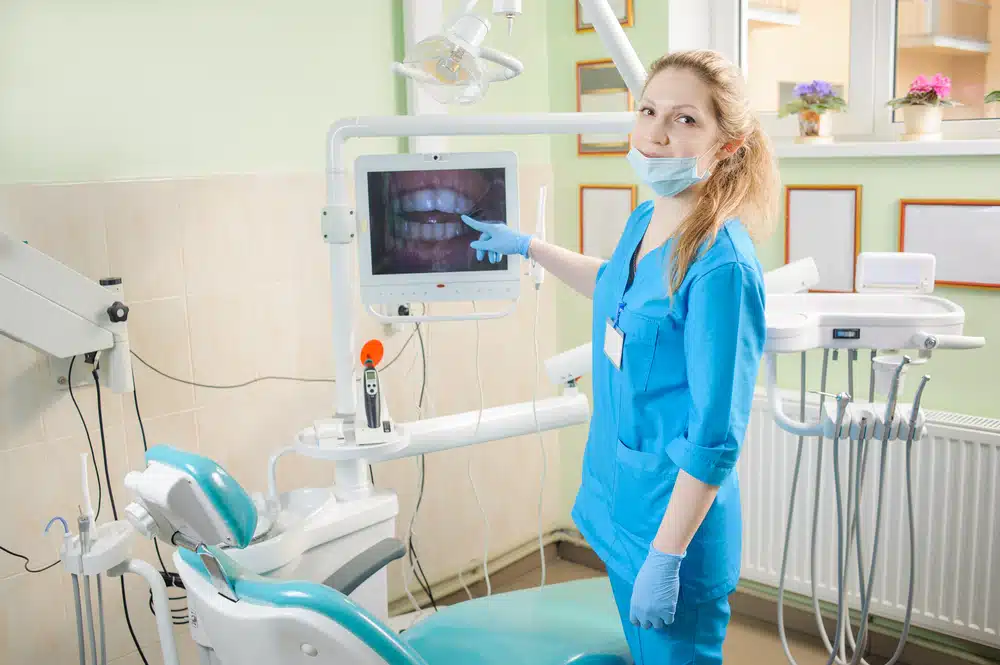Taking care of your oral health might seem unnecessary when you aren’t experiencing any pain or discomfort, but the truth is, many dental conditions are painless in their early stages. This contrast often leads patients to believe that their teeth and gums are perfectly fine, even when underlying issues may be developing.
The Silent Nature of Dental Problems
Most dental issues, like tooth decay and gum disease, begin without any noticeable symptoms. Tooth enamel, which is the hard, outer surface of your teeth, is predominantly mineral and the primary site where decay starts. Because enamel lacks nerves, it won’t hurt in the early stages of decay. By the time you feel pain, the decay has usually progressed to deeper layers of the tooth, often requiring more extensive and expensive treatments.
Similarly, bone loss, the leading cause of tooth loss, progresses quietly. You won’t feel bone loss happening, but it significantly impacts your dental health. Once bone is lost, it is almost impossible to regenerate it with the current state of dentistry. While some procedures like LANAP (Laser-Assisted New Attachment Procedure) offer promise for specific conditions, they can’t reverse horizontal bone loss.
Why Preventive Care is Key
Given the silent nature of these problems, it’s crucial to prioritize preventive care. Here’s why brushing after meals, flossing daily, and eating tooth-friendly foods are vital:
- Prevents Tooth Decay: Regular brushing and flossing remove plaque, the sticky film of bacteria that forms on your teeth. Plaque is the primary cause of tooth decay. By keeping your teeth clean, you can prevent decay from starting in the first place.
- Maintains Healthy Gums: Daily flossing removes plaque and food particles from between your teeth and under the gumline, areas your toothbrush can’t reach. This helps prevent gum disease, which can lead to bone loss and tooth loss if untreated.
- Strengthens Enamel: Consuming foods rich in calcium and phosphates can help remineralize your enamel, making it more resistant to decay. Drinking plenty of water and avoiding sugary snacks also support oral health.
Finding the Right Dentist for You
We recommend these practices not to scare you into the dental chair but because we care about your overall well-being. It’s important to find a good dentist who you feel comfortable with and who prioritizes preventive care. Regular dental check-ups are an essential part of maintaining oral health. During these visits, a dentist can catch and address issues before they become serious, helping you maintain a healthy, beautiful smile for life.
The Long-Term Benefits of Oral Health
Remember, a healthy mouth is a crucial part of a healthy body. Good oral hygiene habits can prevent a host of problems, from tooth decay to gum disease, and can even impact your overall health, reducing the risk of conditions like heart disease and diabetes.
By taking care of your oral health now, you’ll enjoy the benefits for years to come. Don’t wait for the pain to start—act today for a healthier tomorrow. Whether it’s brushing and flossing daily, eating a balanced diet, or scheduling regular dental check-ups, these simple steps can make a big difference in your oral and overall health.
Take Charge of Your Oral Health Today
Invest in your smile and overall health by adopting good oral hygiene practices now. Finding a dentist you trust can make a significant difference in maintaining your oral health and catching potential issues early. Remember, preventive care is the best care.




